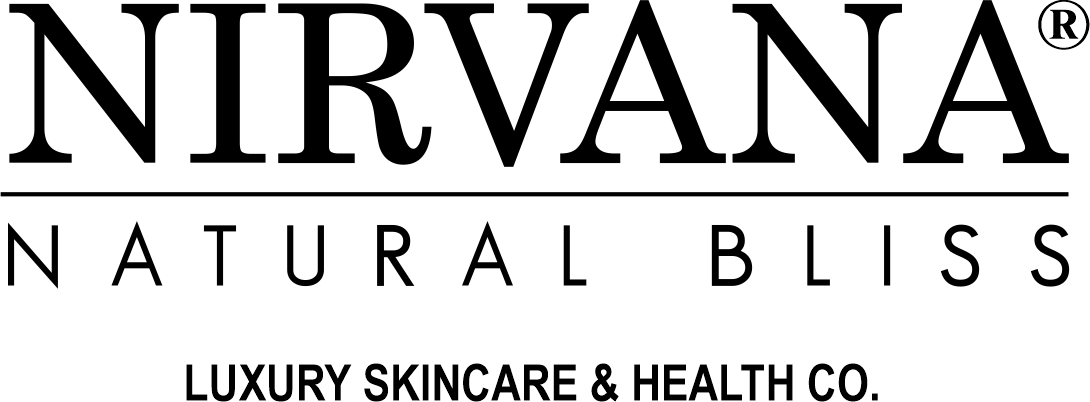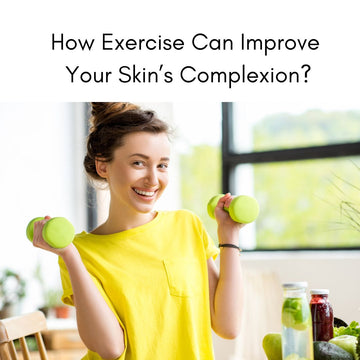By Dr. Nirvana S. Pillay, Medical Scientist and Founder of Nirvana Natural Bliss
Exercise is an essential component of maintaining a healthy body and mind. Not only does regular physical activity improve your overall health, but it can also do wonders for your skin complexion. In this blog, we'll explore the many ways exercise can help improve your skin, leaving you with a radiant and glowing complexion.
Boosts circulation
One of the main ways exercise can improve your skin is by boosting circulation. During physical activity, your heart rate increases, causing blood to circulate more rapidly throughout your body.
At the same time, the increased blood flow and circulation that come with working out helps to draw toxins out of the body, improving the condition of all your vital organs, the epidermis (outermost skin layer) included.
This increased blood flow delivers essential nutrients and oxygen to your skin cells, promoting healthy skin and a glowing complexion.
Reduces inflammation
Regular exercise has been shown to reduce inflammation throughout the body. Inflammation can cause a variety of skin issues, including redness, acne, and aging. By reducing inflammation, exercise can help improve the overall appearance of your skin, leaving you with a more youthful, healthy complexion.
Promotes detoxification
Many people think that sweat can trigger acne flare-ups. In fact, sweating is great for congested skin-it promotes the flushing of impurities from the epidermal layer and cleans out the pores.
Exercise can also help promote detoxification by stimulating your lymphatic system. Your lymphatic system is responsible for removing waste and toxins from your body. By promoting lymphatic drainage through exercise, you can help flush out toxins and impurities from your skin, leaving it clean and clear.
Reduces stress
Stress is a common culprit of many skin issues, including acne, eczema, and psoriasis. Exercise can actually correct the hormonal imbalances that can trigger blemishes, thus reducing the likelihood of outbreaks. Any physical routine that you enjoy-yoga, running, biking, spinning, pilates, boxing, etc. lessens the stress you encounter on a daily basis, helping to prevent stress-related acne. How? Regular exercise can help reduce stress levels by releasing endorphins, which are natural mood-boosting chemicals. By reducing stress, exercise can help improve the overall health and appearance of your skin.
Increases collagen production
Exercise is also wonderful for other skin conditions that may not have to do with acne at all. Are you worried about your skin losing its elasticity or becoming thinner and less resilient? This is a common problem for many of us as we age. As we grow older, we start to lose collagen, making us look gaunt or tired. Physical activity can actually promote the growth of collagen in your skin cells, plumping up your facial skin and making you look younger and more vibrant.
And if you’re worried about wrinkles, consider this: the relaxation that comes after a vigorous bout of exercise has the effect of making your muscles, facial muscles included, soften up. That means your lines will appear less pronounced, contributing to the youthful look you are trying to cultivate.
Collagen is a protein that helps keep your skin firm and elastic. As we age, our bodies naturally produce less collagen, leading to wrinkles and sagging skin. However, regular exercise can help stimulate collagen production, helping to improve the firmness and elasticity of your skin.
In conclusion, regular exercise can do wonders for your skin complexion. By boosting circulation, reducing inflammation, promoting detoxification, reducing stress, and increasing collagen production, exercise can help promote healthy skin and a radiant, glowing complexion. So, next time you hit the gym or go for a run, know that you're not only improving your physical and mental health, but you're also doing wonders for your skin since it not only gets you fit and losing those kilos but also nourishes the skin all over the body and circulates blood, nutrients and oxygen.
DISCLAIMER:
This information is for educational and informational purposes only. The content is not intended to be a substitute for professional medical advice, diagnosis, or treatment. Always seek the advice of your physician or other qualified healthcare provider with any questions you may have regarding a medical condition. Never disregard professional medical advice or delay in seeking it because of something you have read.





